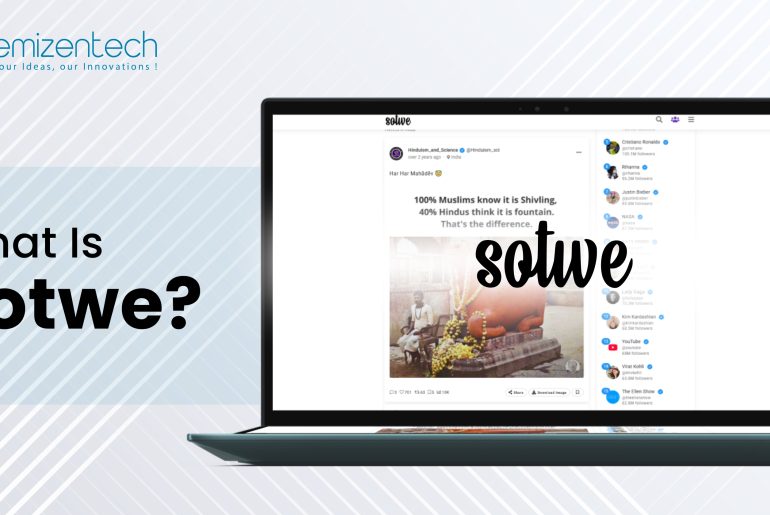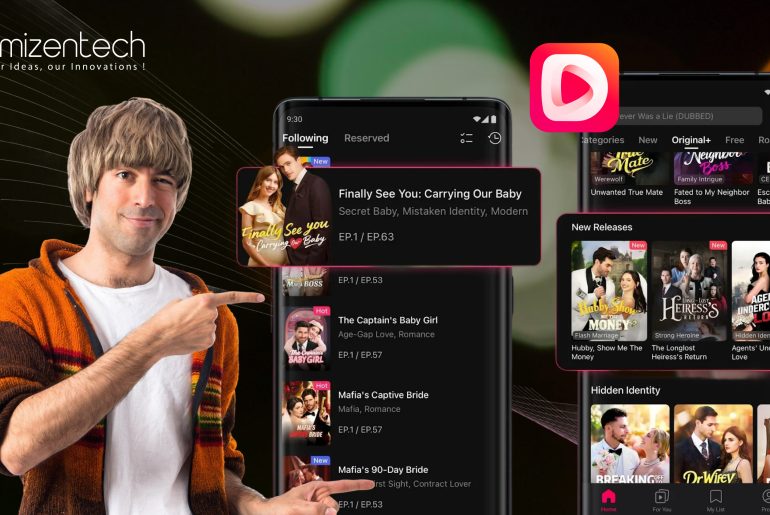Today, many handheld device owners choose mobile apps to meet their routine jobs, whether online food delivery, on-demand grocery, or others. On the other edge, to meet the rising demand for on-demand mobile apps for different platforms, like Android and iOS, more and more app developers prefer to develop cross-platform apps. A multiplatform or cross-platform approach permits developers to create apps that run on varied mobile platforms by coding only once. If you are also devising to build an app, you can follow the same path, but which framework to go with?
Companies pick a framework to deliver consistent experiences across varied web, desktop, or mobile channels. Ionic is one among them. Compared to native app development, Ionic enables developers to build a production-ready app quicker. The story doesn’t end up here. Let’s check out why to choose an Ionic framework for hybrid app development to build high-performing and engaging apps that can drive ROI.
What Is Ionic Framework? And Its Popularity
One of the leaders in enterprise mobile app development, Ionic, a hybrid framework, is an open-source UI toolkit thriving worldwide. A unique trait of Ionic is its web-first approach, in which it uses the power of HTML, CSS, and JS to develop top-quality desktop, Android, iOS, and Progressive Web Apps.
The ionic app development framework aims at an app’s frontend UX/UI interaction, like UI controls, gestures, interactions, and animation. Developers find it easy to understand, learn, and integrate it with other frameworks and libraries, like React, Angular, or Vue. Or, you can use it as a standalone with no frontend framework using the simple Script Include.
Ionic Framework Market Share and Usage Statistics
- According to AppBrain, per the 2021 records, Ionic is picked the most for app development.
- Per a survey by Ionic, over 5 million apps have been developed using the Ionic framework.
- To develop PWAs, around 72% of web developers chose Ionic in 2021.
Benefits of Using the Ionic Framework for Mobile App Development

1. Cross-Platform Development / Platform Independent Framework
Ionic arrives with tools that developers can use with usually-chosen frameworks, libraries, and languages to build native Android and iOS apps and mobile-ready PWAs. Writing once (single codebase) and running everywhere assists business owners and developers save time and money.
2. Easy To Learn
Compared to others, Ionic is mostly picked for cross-platform app development. If you know basic web development skills, you can create apps. Learning the Ionic framework demands understanding some new HTML tags and JavaScript APIs to catch up with native functionality and build apps using a framework of your choice, like Angular, React, Vue, etc.
So, you don’t need to switch your technical career aim; you can take your web development skills learning ahead.
3. Use Native Plugins
With Ionic, you can ease your app development using its native plugins, maintained by the Ionic team. It includes commonly accessed native features mostly used in enterprise app development. And custom development options of Ionic help address native device needs. Additionally, Cordova plugins let the creative designer access varied components. Besides, it enables developers to access features such as flashlights, GPS, cameras, etc.
4. Progressive Web Apps
Progressive Web App (PWA) is a web app that uses the latest web caliber to deliver an app-like experience to users. Such apps are deployed to servers, indexed by search engines, and accessible using URLs.
With Ionic, this can work with Capacitor to offer various deploy targets for your users. Besides, you can deploy your application as a PWA and Native app and reap the benefits of these channels. Ionic permits developers to make their app live to the app store and the mobile web as a PWA.
5. Performance
In PhoneGap (Apache Cordova), when you use Ionic with native mobile application code, you will witness higher performance than hybrid apps. Besides, AngularJS permits Ionic to depend on native hardware acceleration and uses CSS transitions as an option to make the best use of the GPU and boost processor time.
6. Free & Open Source
While various other app development frameworks may charge you an amount to use them, Ionic is available for free, being an open-source framework. Even then, it provides stability to the apps.
7. Support for Angular, Ionic’s Basic Framework
A popular framework, Angular is best at developing mobile and web apps. So, even if you are new to programming language, you can easily develop web apps using this framework. Besides, it arrives with various benefits also, like HTML syntax to include your app components and data binding.
8. Easy Debugging And Testing
With Ionic, you will find testing your mobile app easier as it permits testing on the browser or through simulator testing for every OS. Additionally, it enables the developers to conduct app remote debugging and testing on the exact platform to know about the actual working of the apps.
9. Fast Development Time
If you are developing cross-platform apps, every latest device and platform will support them. The Ionic framework ensures compatibility and high speed to all the latest devices. App designers can design robust and highly- optimized apps.
10. Interactive UI/UX Design
Obviously, an engaging UI holds the strength to attract an increasing number of customers. With the Ionic framework, you can attain this using its predefined components. You can use and even reuse these components in various parts to boost interactivity. Also, this framework comes with CLI, which lets the developers develop apps with the assistance of a single command, including various plugins.
Explore the Top Features of the Ionic Framework for Building Cross-Platform Mobile Apps
1. Built-in UI Components
High-level building blocks that make up Ionic apps and components permit developers to rapidly construct an app’s UI. Ionic arrives with a wealth of components, including lists, cards, and tabs. Once you learn the basics of Ionic, you can visit the API Index to get a complete list of every component and sub-component.
2. Powerful CLI (Command-Line-Interface)
Ionic apps are primarily built through the Ionic command-line utility. The preferred installation method, Ionic CLI, provides various dev tools and help with options. Besides, it is an essential tool that facilitates you to run apps and connect them with other services, like Appflow.
3. Large Community Support
Ionic holds a robust community where the developers can ask relevant questions, share their ideas, and craft new connections. Additionally, they can start or find a meetup to find new resources, blogs, articles, webinars, videos, tutorials, etc., from the top community contributors or only connect with other Ionic developers. In fact, you can get free resources on the Ionic community to get help in your build, iterate, and deploy jobs faster. All over the world, Ionic developers can connect and get engage with Ionic teachers, developers, experts, and educators.
4. Cordova Plugins
As we know, Ionic access native functionality it’s based on Apache Cordova Plugins. A tool for developing mobile apps, Cordova uses web technologies per its APIs, despite any platform-specific ones. While Ionic uses WebView, it can’t, by default, access the device’s hardware APIs. Apache Cordova serves as a bridge between the webview and OS of the devices and offers Ionic apps with native API access. With Cordova, those APIs are packed like a plugin to access functions like a smartphone’s sensors, gyroscope, and camera. Such APIs sets are known as Cordova Bridge.
5. Theming
Today, theming Ionic apps has become easier than before. You can imagine Ionic Framework as a blank canvas that you can easily modify per your brand’s needs while always following the standards of multiple platforms. As this framework is developed with CSS, it holds pre-built default styles that are easy to modify and change. Ionic comes with various global variables used through components to change applications’ default themes. Application colors are the best to alter the look of various Ionic components. And in some of the Ionic components, Stepped Colors are preferred as variations.
Why Choose Emizentech for Mobile App Development?
Emizentech, a leading mobile app development company, holds a team of experienced Ionic developers who follow the latest trends and technologies to emerge with the best and most advanced results.
| On-Time Delivery | We aim to deliver the expected project outcomes within the specified time and budget. |
| Client Satisfaction | Our developers build the apps as the business owners look for, thereby increasing client satisfaction. |
| PCI DSS Compliant | We ensure the development of secure apps that are PCI DSS Compliant. |
| Strong Expertise | Our skilled team of Ionic developers holds exceptional talents in every domain. |
Conclusion
Ionic is a robust app development framework that permits developers to build web and mobile apps faster and effortlessly.
If you are looking to develop a high-performing app for your business, you can choose the Ionic framework, as nothing can beat Ionic, considering user experience and performance. You can hire an Ionic development company or hire expert Ionic developers to complete your project.
Alternatively, you can connect with our development team to get a successful pathway to success.
Additionally, You May Be Interested in Reading
Frequently Asked Questions (FAQs)
IOS offers a complete set of tools that help developers to build native Android and iOS apps and also PWAs.
Ionic is a unique framework that uses web technologies, like CSS, HTML, and JavaScript, to build hybrid cross-platform apps. It demands 3rd-party packages and plugins to wrap your app in native cover.
An open-source software development kit (SDK) helps develop desktop, mobile, and PWAs. Originally, it was crafted on top of AngularJS. But now, it supports every top front-end framework. You can also use Ionic to create UIs for mobile apps developed with React, Angular, or Vue.js.




